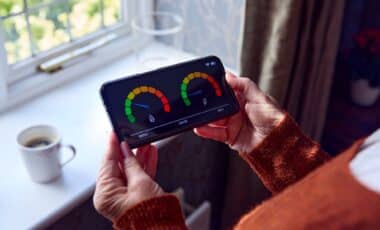The Warm Home Discount scheme is set to provide a one-off £150 payment to low-income state pensioners in January 2025, aimed at easing the burden of winter energy bills. This initiative targets some of the most vulnerable households and operates as part of broader government efforts to support residents during the colder months.
Eligibility for the Warm Home Discount
The £150 payment is designed for low-income households, particularly those with high energy costs. Eligibility is automatically assessed based on specific criteria :
- Pensioners receiving the Guarantee Credit element of Pension Credit qualify for the discount.
- Certain low-income households, including some recipients of Universal Credit, are also included.
- High energy usage is a key consideration for determining eligibility.
Eligible individuals will receive notification letters outlining their qualification for the scheme. The payment will be credited directly to energy accounts, reducing bills, rather than being issued as cash.
How the Discount Is Applied for State Pensioners
The Warm Home Discount operates between October and March, aligning with the period when energy demands and costs are highest. The payment structure ensures timely assistance :
- Direct debit customers will see the amount credited to their accounts.
- Customers on other payment methods will receive top-up vouchers for their energy supply.
Energy suppliers manage the timing of the discount application, with variations depending on their internal processes. This flexibility allows suppliers to accommodate different billing cycles.
Expected Impact of the £150 Payment
With energy bills predicted to rise in January, the payment offers much-needed relief. According to Age UK, the scheme is essential for helping vulnerable households manage their costs during winter. The charity stated:
“The Warm Home Discount is a one-off payment of £150 to help with the cost of energy during the winter. It’s designed to make things a bit easier if you’re living on a low income or pension.”
This support complements existing measures such as the Winter Fuel Payment, although recent government decisions to means-test this benefit have reduced its reach. Chancellor Rachel Reeves confirmed in July that only pensioners on low incomes receiving Pension Credit would qualify for the Winter Fuel Payment, potentially excluding hundreds of thousands of households from additional support.
Key Numbers Behind the Warm Home Discount
The Warm Home Discount scheme provides crucial financial support to eligible households during the colder months. Here are the key numerical details and facts not yet mentioned:
- The scheme operates annually, with support offered between October and March.
- The one-off payment of £150 is automatically applied, meaning no application process is required for most eligible households.
- Over 2.3 million households benefited from the scheme in previous years, according to government statistics.
- Pensioners receiving the Guarantee Credit element of Pension Credit typically represent a significant portion of recipients, with around 1.4 million pensioner households estimated to qualify.
- Universal Credit recipients with high energy costs also form part of the eligibility pool, with specific numbers varying annually.
- The discount is not issued as cash but is credited directly to energy accounts or provided as top-up vouchers, depending on the customer’s payment method.
These figures underline the scheme’s wide-reaching impact, providing vital assistance to millions of low-income households across the UK during the winter season.
Broader Implications of Energy Support Schemes
The Warm Home Discount reflects the government’s commitment to targeted assistance, emphasising the importance of addressing the needs of low-income and high-energy-cost households, including state pensioners. However, the scheme also highlights the growing complexity of eligibility requirements, which could exclude some pensioners who previously benefited from similar initiatives.
The £150 payment is part of a larger effort to mitigate energy poverty, ensuring state pensioners and other vulnerable populations can stay warm during winter. As energy prices continue to fluctuate, these schemes play a crucial role in maintaining financial stability for millions of households.









